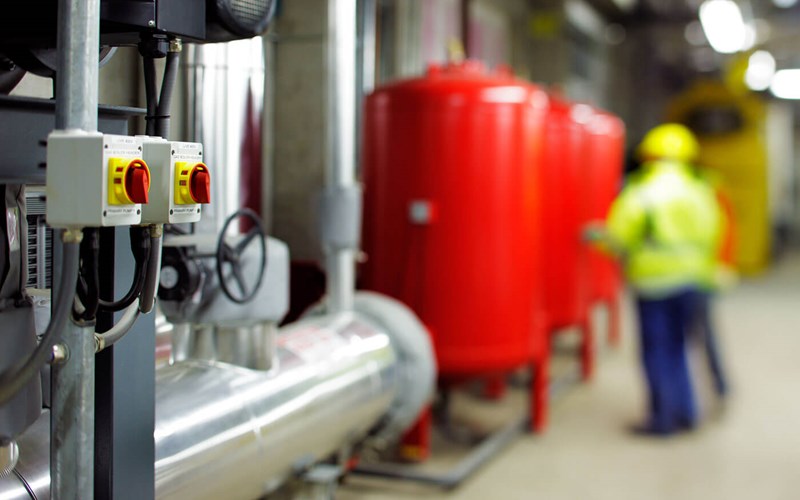
09 February 2024
Essential Skills When Sourcing An Oil and Gas Electrician Or Electrical Company
Navigating the complexities of energy production requires the expertise of a skilled oil and gas electrician. Their role is integral to operation efficiency and critical safety standards, especially when handling electrical equipment in challenging environments.
This article strips away the complexities, providing a direct overview of what these specialized electricians do, including their ability to interpret architectural drawings and manage electrical equipment. We delve into the core qualifications they must have, and the vital skills and safety requirements essential for their role. This encompasses their proficiency in understanding and interpreting drawings, ensuring all electrical installations align with the outlined architectural plans.
Step into the industrial heartbeat and find out how these professionals power the oil and gas sectors, utilizing their expertise in electrical equipment and interpretation of complex architectural drawings to maintain operational efficiency and uphold safety.
Key Takeaways
-
Oil and gas electricians are critical for maintaining safety, ensuring equipment reliability, and adhering to compliance across industry operations. Their responsibilities are not limited to electrical systems alone but also extend to mechanical components. They play a key role in system maintenance, troubleshooting, and safety training. An electrician in this field must be proficient in interpreting drawings and schematics to effectively maintain and repair various electrical equipment.
Qualifications for oil and gas electricians must include relevant certifications and safety records. Practical skills such as the ability to interpret drawings and knowledge of electrical code specifications are essential.
-
When sourcing for these jobs, it’s vital to check credentials, stay informed about industry trends, and review past work history and safety records. Companies like Copper Electric exemplify high standards in these areas, showcasing responsible and skilled electricians.
The Role of Electricians in the Oil and Gas Industry
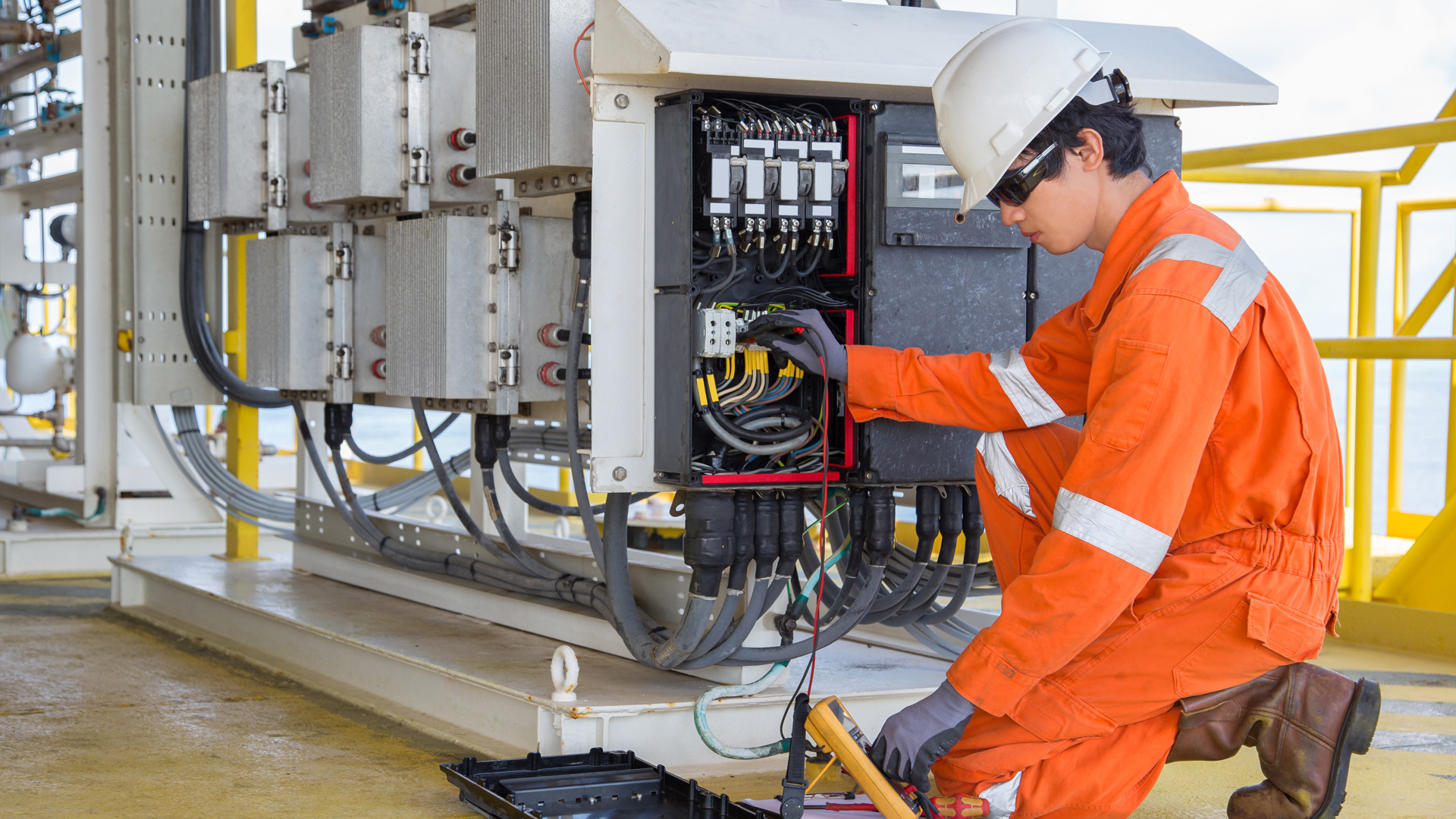
Electricians employed in the oil and gas industry play a crucial role in preventing accidents, ensuring equipment reliability, and maintaining safe operations. Their jobs involve the upkeep and repair of electrical systems, troubleshooting various types of machinery, and enforcing safety protocols. These electricians are responsible for the seamless operation of both electrical and mechanical systems, interpreting schematics and drawings to ensure all equipment functions correctly.
Delving deeper into these duties helps in understanding the critical role these professionals play and how companies like Copper Electric maintain their high standards in this challenging industry.
Electrical System Maintenance
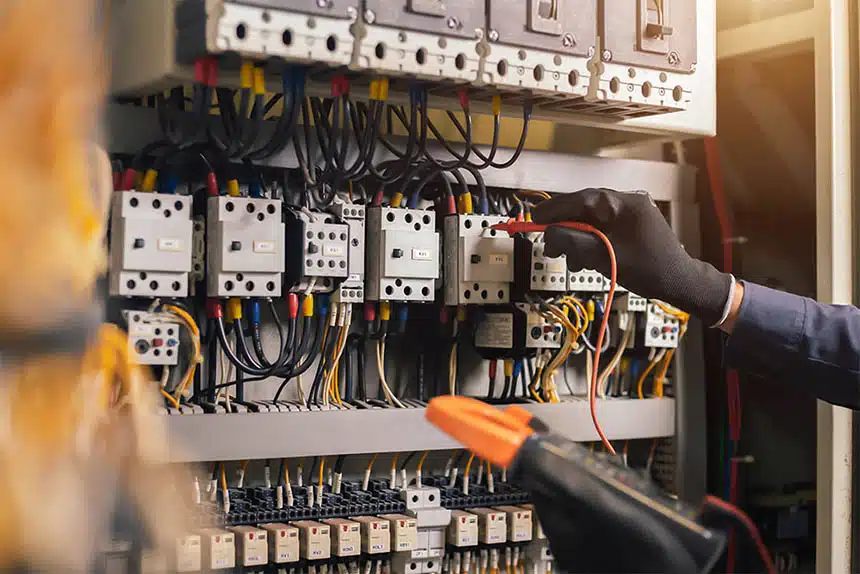
In the oil and gas industry, electricians are tasked with the critical job of installing, maintaining, and repairing various types of electrical equipment. Their responsibilities extend beyond mere maintenance; they must strictly adhere to industry standards and regulations while calibrating, modifying, or fixing electrical systems. This often involves interpreting drawings and schematics related to the electrical equipment, ensuring each modification or repair aligns with the precise specifications.
Electricians are pivotal in regularly inspecting and conducting preventive maintenance on a wide range of equipment, such as power generation systems, distribution systems for electricity, and electric motors. Their job duties also encompass overseeing valve actuators, pumps, gauges, and meters found within an oil facility. Proficiency in understanding and interpreting wiring diagrams is crucial for these roles.
They often encounter challenges such as malfunctioning wires and mechanical equipment failure, requiring robust troubleshooting skills and repairs. Furthermore, the safety hazards inherent in this line of work demand electricians to exercise extra caution, especially when handling complex electrical systems. Holding a valid driver's license is typically essential for electricians in this field due to the need to travel between various job sites.
Overall, the role of an electrician in the oil and gas industry centers around ensuring the efficient functioning of all electrical units and processes. This includes repairing wiring, circuit breakers, and other electrical and mechanical equipment, as well as adhering to safety protocols during maintenance tasks. Their comprehensive responsibility is to maintain the integrity and functionality of all electrical equipment within the industry.
Overall, the role of an electrician in the oil and gas industry centers around ensuring the efficient functioning of all electrical units and processes. This includes repairing wiring, circuit breakers, and other electrical and mechanical equipment, as well as adhering to safety protocols during maintenance tasks. Their comprehensive responsibility is to maintain the integrity and functionality of all electrical equipment within the industry.
Equipment Troubleshooting and Repairs
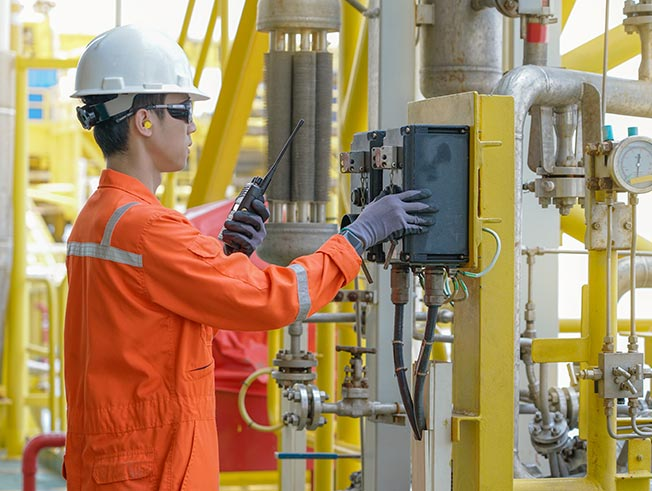
One of the main tasks of an electrician is to troubleshoot and fix equipment. These professionals are highly skilled at identifying and resolving common electrical problems such as electrocution, arc flashing, hazards from overhead power lines, blown fuses, and damaged or overheated equipment.
They follow a structured approach that involves observing the issue, pinpointing problem areas, determining potential causes, conducting tests on possible causes, making replacements where necessary, and finally testing for proper operation.
Electricians in the oil and gas sector utilize various tools when diagnosing issues with equipment. Some commonly used ones include non-contact voltage testers, insulated tools, clamp meters, multimeters, insulation testers, wire strippers, electrical wire pliers, knockout punch sets, and conduit benders. Insulated screwdrivers are also among their essential tools.
These specialized technicians can be found working for companies like Copper Electric, which employs expert staff well-versed in repairing defective machinery and restoring worn out surfaces within this industry.
Safety Compliance
In the oil and gas industry, safety is of utmost importance and electricians play a crucial role in upholding it. They must undergo appropriate training to identify potential hazards such as shock or arc flash. Wearing protective gear and complying with OSHA requirements are also necessary measures for their job.
Obtaining certifications like NEBOSH IGC or IOSH Managing Safely is often mandatory to ensure compliance with safety standards.
Companies like Copper Electric prioritize safety by offering specialized health and safety courses designed specifically for electricians working across all sectors within the industry.
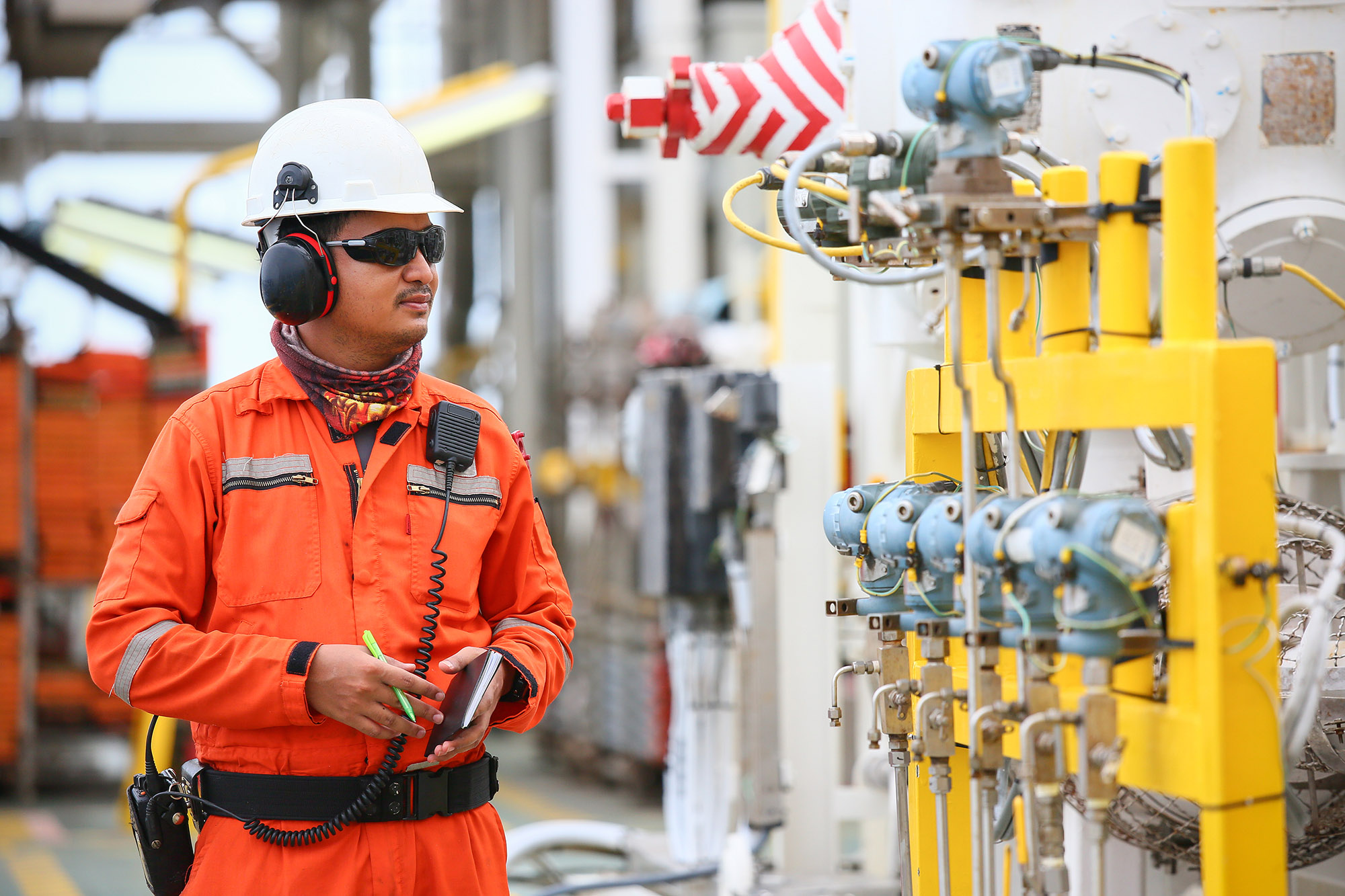
These courses equip them with skills in interpreting schematics, maintaining safe work environments, conducting live conductor procedures, securing connections, and performing regular equipment checks.
To maintain security protocols effectively, reviews should regularly be conducted on existing precautionary measures implemented at various stages of an electrical connection process.
Electricians must also follow proper protocol when connecting grounding wires, besides carrying out timely inspections and maintenance routines to enhance overall workplace wellbeing.
Reviewing regulations set forth regarding both protection-of-personnel related matters, such as circuit safety ground lockout while connecting “live,” will help minimize the risks associated with handling tasks efficiently.
Additionally, careful consideration should be placed on management oversight issues that provide for prompt correction where any lack of electrical disconnection practices may have been noted.
Key Qualifications When Looking For Oil and Gas Electricians

When looking for oil and gas electricians, it is crucial to prioritize certain qualifications. These may include possessing a valid driver’s license, having the necessary certifications and training, maintaining good driving record and an excellent safety record, as well as being able to understand electrical and architectural drawings.
The ability to interpret these technical diagrams is vital in effectively maintaining and troubleshooting various equipment within electrical systems.
Valid Driver's License
Oil and gas electricians are typically required to hold a valid driver’s license. This is necessary for them to travel between different job sites, as well as transport essential equipment and materials when needed.
Additional certifications such as the Oilfield Driver Awareness (ODA) Course from Energy Safety Canada or completion of a specialized driver training course may also be necessary depending on their specific tasks.
Not having a valid driver’s license can have serious consequences for those working in this field, including an increased risk of accidents, failed inspections, financial losses and potential limitations when selling one’s home.
Certifications and Training
It is crucial for electricians in the oil and gas industry to have certifications and training. Some important credentials include the Stage 3 OPITO Certificate in Oil & Gas Electrical Engineering Systems, which is accredited by City & Guilds, as well as the CompEx certification for Quality Assurance/Quality Control (Electrical).
To these certifications, comprehensive training programs are essential. This includes attending health and safety courses offered by Energy Safety Canada, participating in oil and gas training provided by PetroSkills, and taking part in specialized programs designed specifically for electricians seeking jobs on offshore rigs within the oil industry.
Safety Records
An experienced oil and gas electrician’s profile must include a strong safety track record. This involves implementing an effective electrical safety program, establishing clear protocols for reducing hazards, complying with OSHA regulations, and promoting a culture of safety within the organization.
In order to maintain their impressive safety records, electricians strictly adhere to safe work procedures when dealing with live conductors. They also ensure that proper installation of protective grounds is carried out and regularly inspect equipment while performing necessary maintenance tasks.
Safety certifications are crucial in demonstrating an electrician’s competence and dedication towards practicing secure methods.
Examining an electrician’s past work experience and safety records is a crucial step in the selection process. This entails reviewing.
-
Records of equipment maintenance
-
Logbooks documenting use of equipment
-
First aid reports
-
Hearing examinations
-
Proof of completed safety training and relevant certifications
-
Incident logs detailing any accidents or near-misses
The preservation of a good safety record by responsible electricians involves:
-
Adhering to safe protocols, especially when dealing with live wires
-
Ensuring proper installation and upkeep of grounding systems
-
Conducting regular inspections and servicing on all equipment
Obtaining safety certifications holds great significance for electricians as they demonstrate competence and dedication towards implementing safe practices.
Essential Skills for Oil and Gas Electricians When Sourcing These Contractors

Strong key skills are essential when hiring contractors for oil and gas projects, including the ability to accurately interpret electrical drawings, knowledge of specific regulations in the electrical code, and proficiency in working with testing equipment.
These abilities play a crucial role in preventing accidents, increasing reliability of equipment operations, and ensuring secure proceedings throughout the project.
Ability to Interpret Electrical Drawings
Being able to interpret drawings, especially electrical ones, is a vital skill for oil and gas electricians. These drawings serve as a guide for maintenance tasks, aid in navigating the system, and ensure correct installation and troubleshooting of electrical systems with efficiency.
Familiarizing oneself with symbols used to interpret drawings in schematics, practicing reading different schematic drawings related to designs, and developing proficiency in interpreting them are key elements of accurately understanding such diagrams.
To correctly understand electrical drawings requires electricians to become familiar with the various conventions used but also read through several types of drawings including schematic drawings, diagrams wiring diagrams block power control or single line versions.
They should reinforce their skills by creating personal schemas seek feedback constantly strive improvement toward expertise these critical visuals role enabling effective performance essential duties within this field.
Knowledge of Electrical Code Specifications
A thorough understanding of electrical code specifications is essential for an electrician working in the oil and gas industry. This knowledge ensures compliance with national standards, covers all aspects of system components and installation procedures, and prioritizes safety for personnel, equipment, and the environment on offshore energy installations.
The primary relevant electrical code specification for this sector is the Code for Electrical Installations at Oil and Gas Facilities (Fifth Edition 2015).
Failure to adhere to these electrical code specifications can lead to incidents involving hazardous electricity, which could result in fatalities. It also increases the risk of encountering power lines during tasks like transportation or heavy lifting activities as well as during excavation work.
Proficiency in Testing Equipment
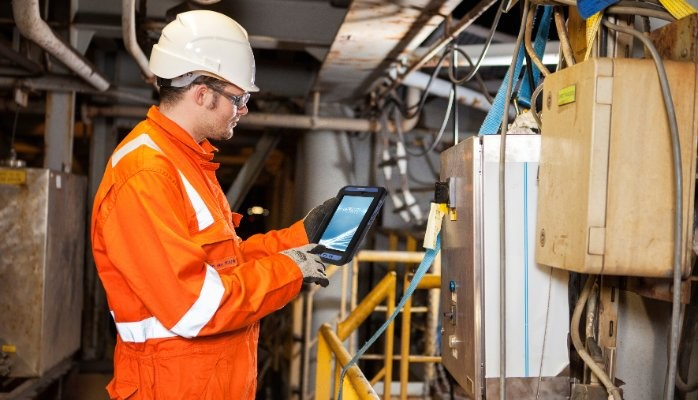
Proficiency in testing equipment is a crucial skill for an electrician working in the oil and gas industry. This ability allows them to perform preventive, repair and predictive maintenance, ensuring that electrical systems are safe and reliable.
The standard procedures for testing electrical equipment in this sector include both basic visual inspections as well as advanced techniques like ultrasonic, radiography, thermographic, laser shearography, eddy current, and microwave tests.
With these tools at their disposal, an electrician can detect common issues such as failures of equipment or wiring defects, irregular functioning of pump wells open circuits/short-circuits, dysfunctional grounding, faulty components, inoperable pumps, negligent leakages, malfunctioning parts etc.
Role Opportunities for Oil and Gas Electricians

An electrician has many jobs and career prospects within the oil and gas sector. These jobs include roles such as rig electricians on drilling rigs, industrial electrician positions in various industries, and other jobs in commercial electrical work.
The industry offers top pay and numerous opportunities for skilled workers, making it an ideal time to set up a job alert that can cater specifically to your preferences regarding employment in this field.
Rig Electrician
As a rig electrician, one’s responsibilities include ensuring the smooth functioning of offshore drilling platforms by installing, maintaining and repairing electrical systems and equipment. This involves daily operations management as well as conducting inspections to keep the rig’s electrical systems in good condition.
Proficiency in these tasks is typically acquired through completing an approved apprenticeship program, gaining up to 5 years of experience working with various types of electrical systems on oil rigs, obtaining certification for handling high voltage situations, possessing at least a high school diploma or equivalent qualification, and holding a valid driver’s license.
Industrial Electrician
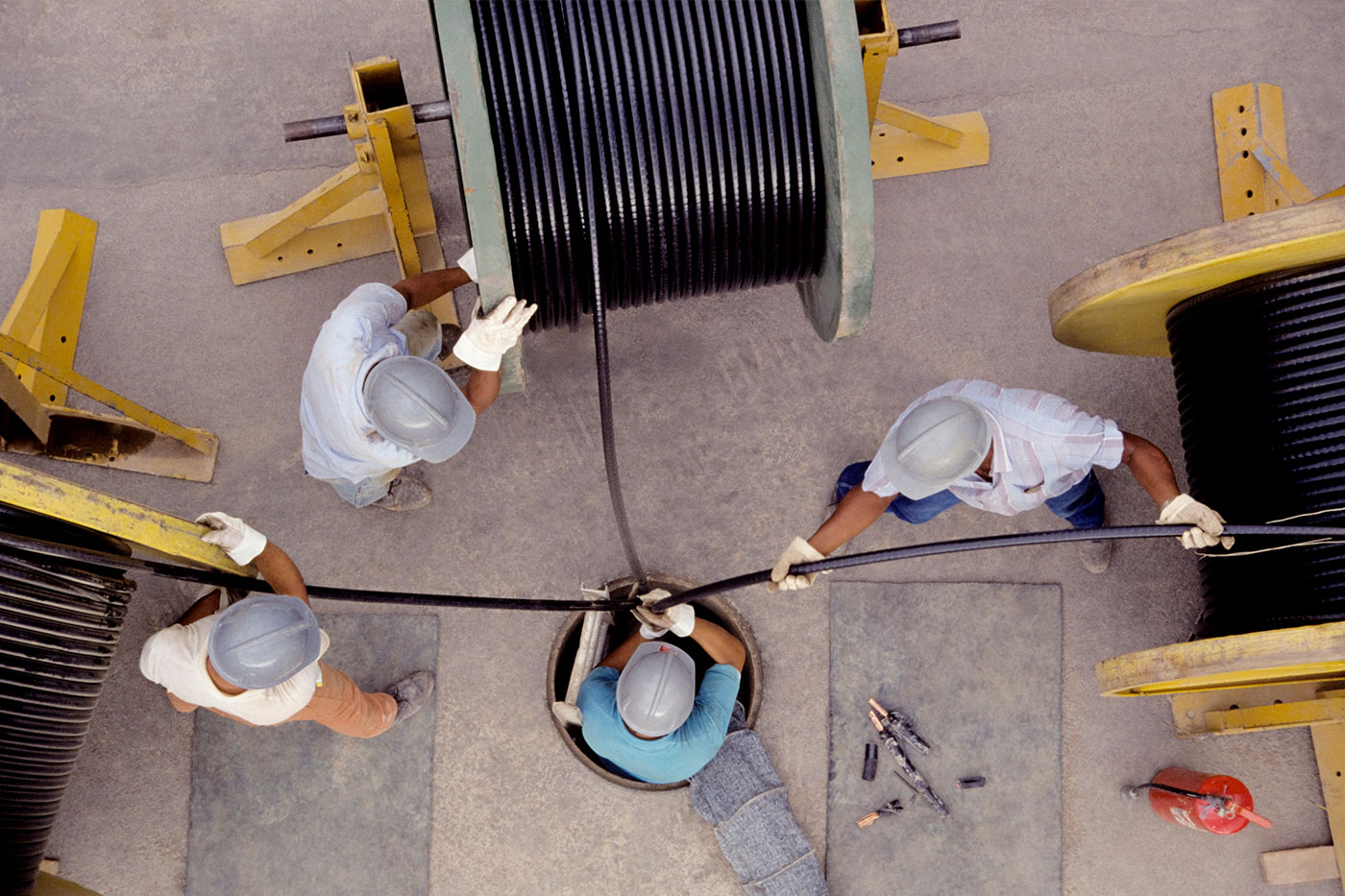
The duties of an industrial electrician in the oil and gas industry include developing electrical systems for drilling equipment, creating necessary documents and architectural drawings for, installing and maintaining electrical systems, overseeing repair teams’ work, and managing electricity in processing centers or warehouses. They are responsible for designing appropriate layouts based on technical drawings related to specifications and diagrams.
To qualify as an industrial electrician, individuals should possess a high school diploma along with completing a four- to five-year apprenticeship program specifically designed for this field. They can also have certification or diplomas from vocational schools which serve as prerequisites for obtaining employment opportunities related to handling electrical systems within the oil and gas sector.
Commercial Electrician
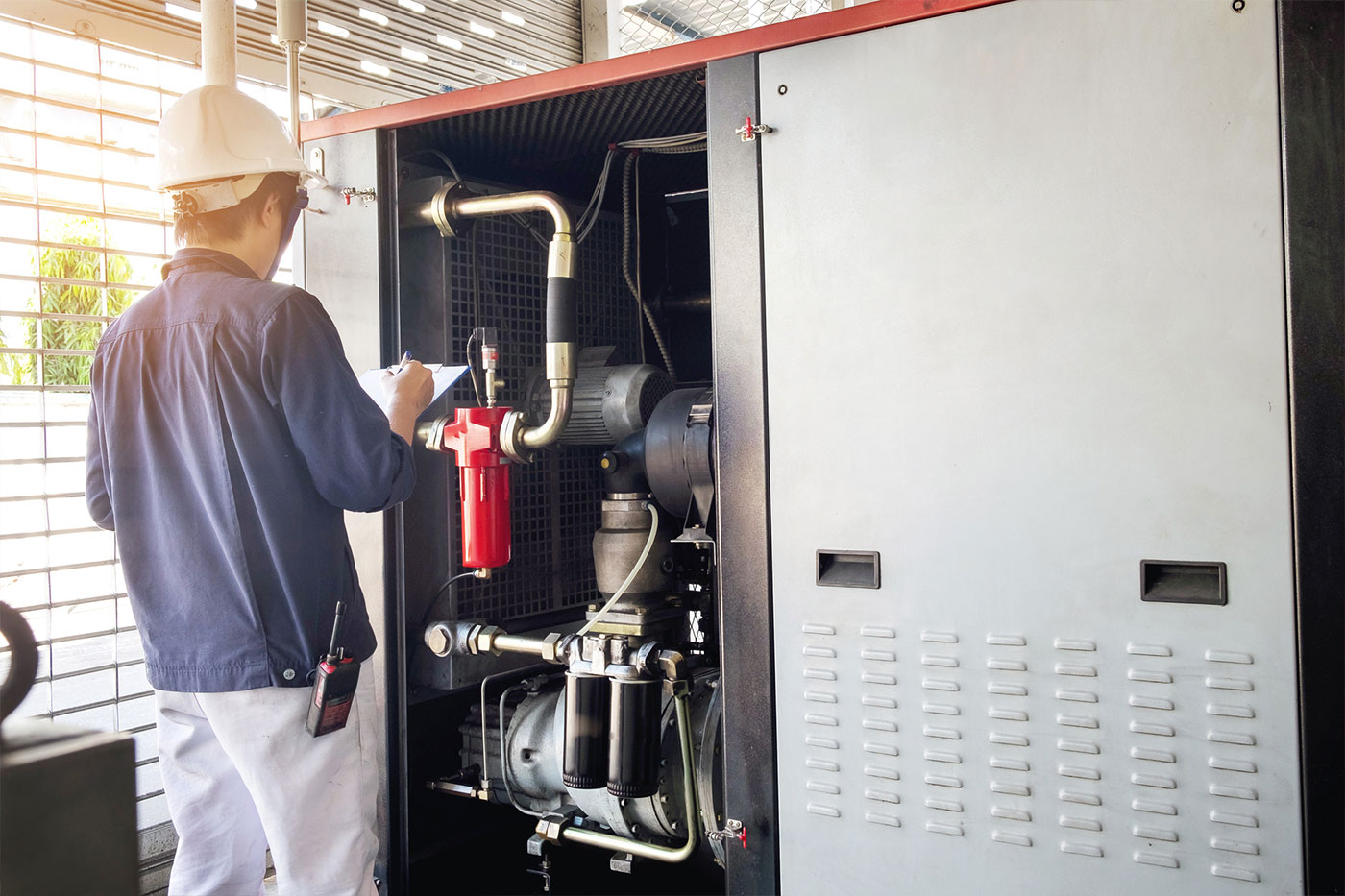
Electricians who specialize in commercial work play a crucial role in the oil and gas industry, focusing on setting up and ensuring the smooth operation of electrical systems specifically designed for offshore rigs and drilling locations. These professionals offer both routine maintenance and repair services as well as urgent repairs for all things related to electricity.
In order to be employed as an electrician working with commercial clients within this sector, individuals must typically possess credentials from organizations like National Institute for Certification in Engineering Technologies or Electrical Safety Authority (ESA). Some companies may provide their own safety training courses such as Workplace Hazardous Materials Training so that employees can maintain proper certification requirements.
Tips for Securing A Great Oil and Gas Electrician

Securing a skilled oil and gas electrician involves several important steps.
-
Verify the professional’s credentials, ensuring they have the necessary qualifications for the job.
-
Network with others in the industry to gather recommendations or insights on potential candidates.
-
Stay updated on current trends and advancements within this field of work to better evaluate an electrician’s level of expertise.
-
Review their past employment history, paying special attention to any safety records or incidents that may impact their reliability as a worker.
It is also crucially important to pay close attention to feedback from previous clients when choosing an oil and gas electrician.
Networking and Building Connections
Creating relationships and networking can greatly improve your chances of finding an experienced electrician in the oil and gas industry. This can be achieved by thoroughly researching events, presenting oneself professionally, making introductions without being too focused on selling, asking thoughtful questions, actively listening to others’ experiences and demonstrating enthusiasm for the field. It is also beneficial to target specific individuals through various networking platforms while offering value with every interaction.
Participating in organizations related to the industry plays a vital role in establishing connections within the oil and gas sector. These associations organize events and offer memberships that allow companies to expand their professional network, which ultimately leads them towards discovering a highly skilled electrician recommended by other professionals.
Staying Up-to-Date with Industry Trends
It is beneficial to stay updated on industry trends when searching for an electrician with relevant skills and experience. Changes in the market, advancements in smart buildings, incorporation of renewable energy, expansion of prefabrication, and infrastructure for electric vehicles are important considerations. These factors greatly affect an electrician’s practices and services offered.
Being familiar with current trends can give a competitive advantage when choosing the right electrician for your needs. Therefore, it is recommended to regularly update your browser so you have access to the most recent information about these developments in the oil and gas electrical industry.
The prevailing tendencies observed within this sector include 3D modeling utilization coupled with visualization techniques such as 4D seismic technology which adds another dimension through additive manufacturing methods alongside artificial intelligence technologies integration into projects. Incorporating these cutting-edge advancements will enable effective selection of suitable professionals that align well with one’s specific requirements while staying up-to-date on emerging developments will aid significantly in identifying skilled personnel who meet exact specifications related to electricity installation work.
Customer Testimonials
Testimonials from satisfied customers are a valuable resource when looking to hire an electrician as they offer firsthand knowledge of their work and level of customer satisfaction. This information is crucial in making informed decisions, which Copper Electric has received praise for through their website:
-
exceptional skills and expertise
-
promptness in completing tasks
-
seamless communication throughout the project
-
outstanding commitment towards providing excellent service
The company’s dedication can be seen through their quick response times, attention to address any concerns, and delivery of top-quality work. To testimonials, online reviews and ratings also provide useful insights into the professionalism, reliability, and overall performance of an electrician. Positive feedback from clients serves as evidence of a high standard set by competent professionals.
Overall client satisfaction levels serve as strong indicators that support recommendations for these skilled workers with positive online reviews Strengthening this notion along with highlighting additional aspects such as quality craftsmanship demonstrated on projects handled previously.
Why Copper Electric And Controls Near Edmonton Is a Great Choice In Northern Alberta
Electricians play a crucial role in maintaining the safety and efficiency of operations within the oil and gas industry. Their duties involve overseeing electrical systems, troubleshooting equipment, and ensuring compliance with safety protocols. To excel in this field, it is essential to possess a valid driver’s license, appropriate certifications and training, as well as demonstrate an impressive track record when it comes to safety.
Whether you are seeking contractors for your oil or gas project or considering pursuing a career in this sector yourself, it is important to have knowledge about the responsibilities, must-have qualifications, and key abilities expected from professionals working specifically with electrically-focused tasks.
Copper Electric, the leader among companies specializing in such services, is known for its unparalleled expertise and commitment towards providing top-notch service by employing only highly skilled individuals who adhere strictly to the standards of excellence expected by clients dealing with oil, gas, and related industries.
Customer reviews are another important aspect when it comes to evaluating the quality of services provided by Copper Electric - who prioritize delivering timely personalized support with over two decades worth of on-field expertise across varying sectors including agricultural, residential commercials big giants like oil & gas conglomerates, etc.
For 25 years, Copper Electric and Controls has been a top choice for electrical services in the oil and gas industry in Northern Alberta. Their reputation for excellence is well-known as they continuously surpass industry standards to provide unparalleled quality and service.
With their extensive experience, Copper Electric understands the specific needs of the oil and gas sector. This allows them to offer reliable electrical solutions that meet the demands of their clients with efficiency. Backed by 25 years of expertise, Copper Electric consistently delivers high-quality services across various sectors while maintaining its dedication to excellence.
Most Frequently Asked Questions When Sourcing an Oilfield Electrical Company or an Oilfield Electrician
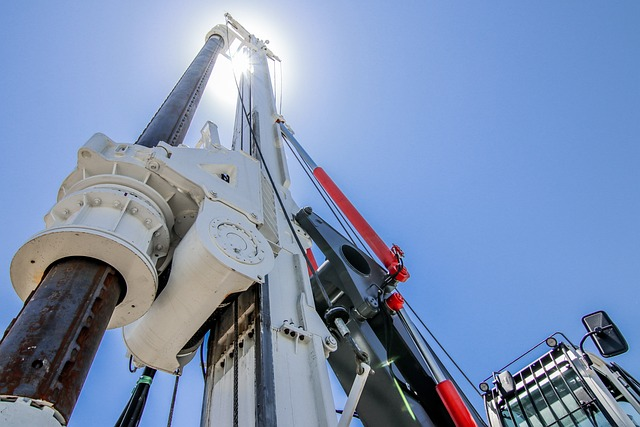
When looking for an oilfield electrical company or electrician, there are a few common inquiries that come to mind. These include the necessary qualifications required for an individual to work as an oilfield electrician, measures taken by these companies in maintaining safety standards in high-risk environments, and how one should assess the experience of potential candidates.
There are also frequently asked questions about Copper Electric’s range of services. With 25 years of industry experience, they provide electrical assistance to commercial, industrial residential areas as well as agriculture and even specialized support for the oil and gas industries. Their priority is offering prompt customized solutions tailored specifically to their clients’ needs.
What are the primary responsibilities of an oil and gas electrician?
It is the responsibility of an oil and gas electrician to repair and maintain electrical systems in the oil and gas industry. They must also know how to interpret drawings and schematics, ensuring compliance with electrical code specifications.
How important is the ability to interpret electrical drawings for an electrician in the oil and gas sector?
Interpreting schematics and drawings related to electrical systems is crucial for an electrician in the oilfield industry, as it enables them to maintain and repair these systems.
What types of electrical systems do electricians in the oil and gas industry work on?
Electricians in this field work on a variety of electrical systems, including power generation, distribution systems, and various types of electrical equipment essential for oil and gas operations.
What electrical code specifications must oil and gas electricians be familiar with?
Electricians in the oil and gas sector must have a thorough understanding of electrical code specifications relevant to the industry to ensure safe and compliant installations and repairs.
Why is it important for oil and gas electricians to interpret architectural drawings and electrical drawings related to their work?
The ability to interpret architectural and electrical drawings is essential for electricians to understand the layout and connection of electrical systems and to perform accurate repairs and maintenance.
What qualifications are required for an electrician working in the oil and gas industry?
An oil and gas electrician typically needs a valid driver's license, a clean and valid driver's license in abstract, a good driving record, and certifications that demonstrate their ability to interpret schematics and adhere to safety standards.
How do oil and gas companies ensure their electricians maintain a good driving record?
Companies often require a clean driver's abstract as part of the hiring process to ensure electricians can safely travel to different job sites, which is good driving record is crucial for this position.
What is the role of an electrician in ensuring the secure connection of electrical equipment in oil and gas operations?
Electricians are responsible for ensuring that all electrical equipment is securely connected and functioning correctly, which is vital for the safe and efficient operation of oil and gas facilities.
What kind of repairs and maintenance do electricians perform in the oil and gas industry?
Electricians conduct repairs and maintenance on a range of equipment, from mechanical to electrical, ensuring that everything operates safely and efficiently in oil and gas settings.
What is the average pay for an oil and gas electrician, and what factors influence it?
The pay for an oil and gas electrician position varies based on experience, location, and the complexity of the job. Companies value electricians who can keep systems up to date and maintain them efficiently.
Not Finding What You Are Looking For? Here Is Copper Electric's Top Resources Online
Copper Electric and Controls Offers a great selection of Electrical services such as:
Comercial Electrical Contracting
Industrial Electrical Contracting
Oilfield Electrical Contracting
